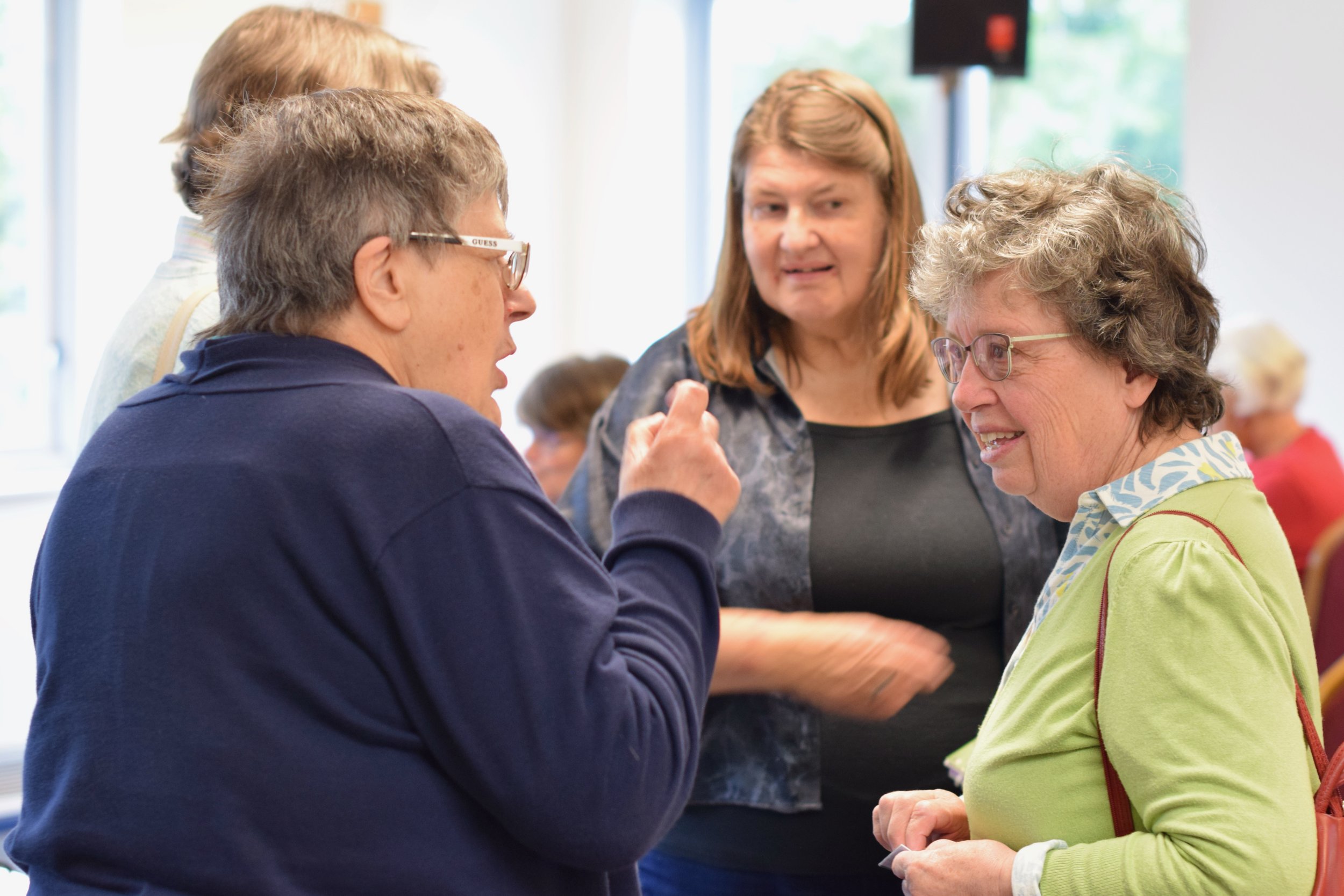Deaf Awareness
How your hearing may change
As we get older our bodies can start to show some wear and tear. This can happen with hearing, especially for high sounds such as whistles, most bird song and some speech sounds. In fact, by the time we reach 70 the majority of us will have some degree of hearing loss, even if we’ve had perfectly good hearing up until then.
Some questions to ask yourself:
Do I need the television volume set at a louder level than other people?
Have I missed callers at the front door?
Are other people mumbling?
Can I hear the phone ringing?
When I answer, can I understand what’s being said?
Do I have problems hearing when there’s a high amount of background noise or when I'm with a group of people?
If the answer to any of these scenarios is 'yes' - for yourself or for someone you know, it’s very likely that some help with hearing is needed.
The help you can get
Devices to help you hear better, or to alert you to sounds you might otherwise miss:
Hearing aids
Hearing aids are provided free on the NHS and can also be purchased privately. Try the NHS hearing aids first, as privately bought aids are expensive and NHS aids are suitable for most types of hearing loss. It’s much easier to get used to a hearing aid when you first discover that you have a hearing loss, so don’t wait until you’re struggling. Hearing aids don’t give you perfect hearing but you will almost certainly benefit from them.
TV listeners
Phone amplifiers,
Alerting devices for the doorbell, alarm clock, smoke alarm, phone
Other devices such as TV listeners and alerting equipment may be supplied by your local Social Services. In addition, all these devices can be purchased from suppliers of equipment for deaf people.
Lip reading classes
Why not consider a lip reading class? You will meet others who also have a hearing loss, as well as learning strategies to help you in social situations.
Special opportunities for service when you have hearing loss
You are ideally placed to serve others who also have hearing loss. Deafness, being invisible, is a largely misunderstood disability. Many deaf people feel isolated and upset that nobody seems to understand why they are retreating from social situations. You can offer:
Advice on how to get the most from their hearing aid and other devices
Encouragement to return to social situations and relieve isolation, you could even offer to go with them.
Prayer and understanding of the challenges of hearing loss
Open Ears is a deaf aware Christian organisation, formed specifically for those who have hearing loss.
We run regular online events, fully accessible through Speech to Text (STT) Details of upcoming events can be found on the Events page.
We also produce Hearing Eye, a quarterly magazine written by and for people with hearing loss. To see current and past copies of Hearing Eye go to the Magazine page.
Find out more here
Join our online and in-person events to connect, share, and grow together. From conferences and prayer sessions to workshops, seminars, quiz nights, and gatherings—there's something for everyone!
Explore our quarterly magazine for the latest Open Ears updates, hearing loss tips, puzzles, devotionals, and team features—all in one inspiring read.
Keep in touch with Open Ears
We’d love to stay in touch with you. Sign up here to have stories, news, and information on how to get involved straight into your inbox.
We respect your privacy. By subscribing, you agree to receive our newsletters and acknowledge our Privacy Policy. You can unsubscribe at any time.

